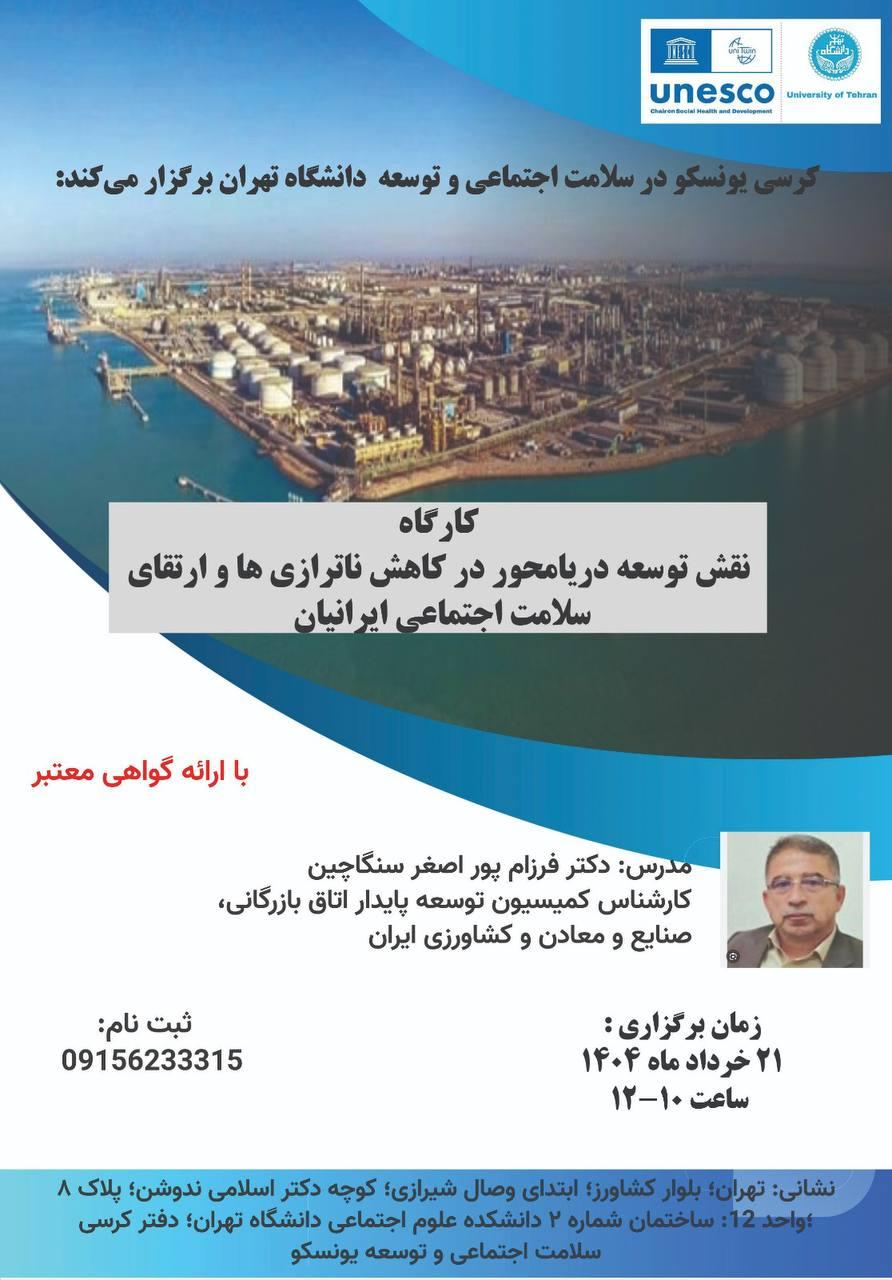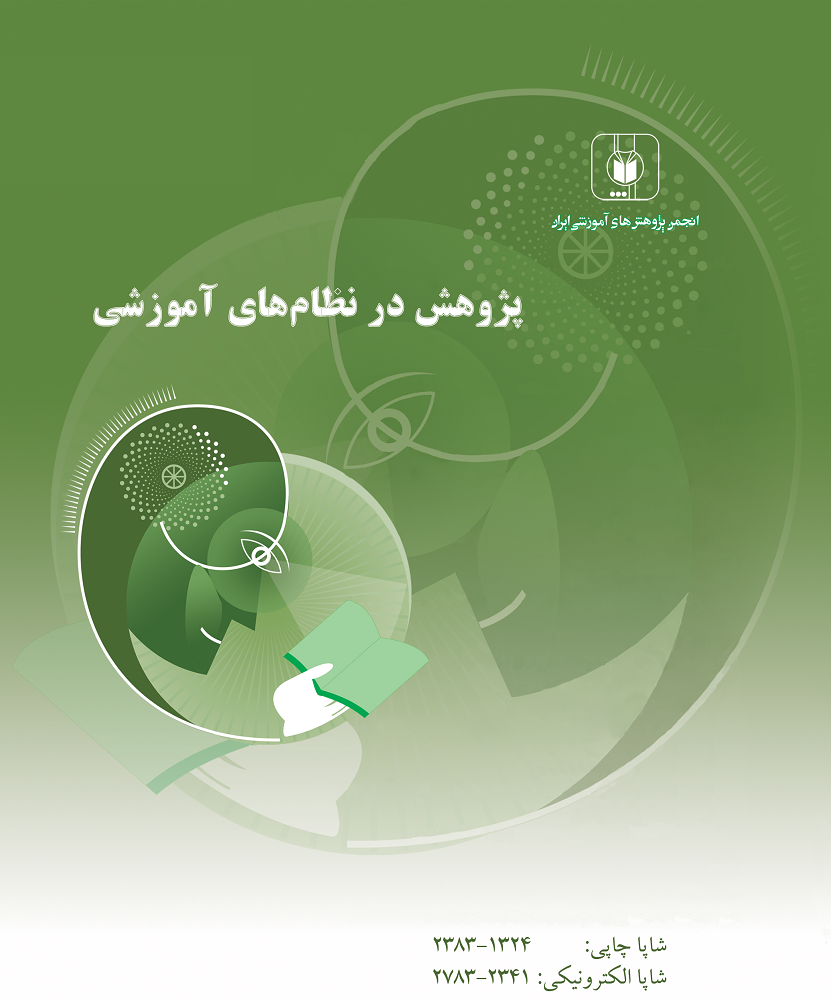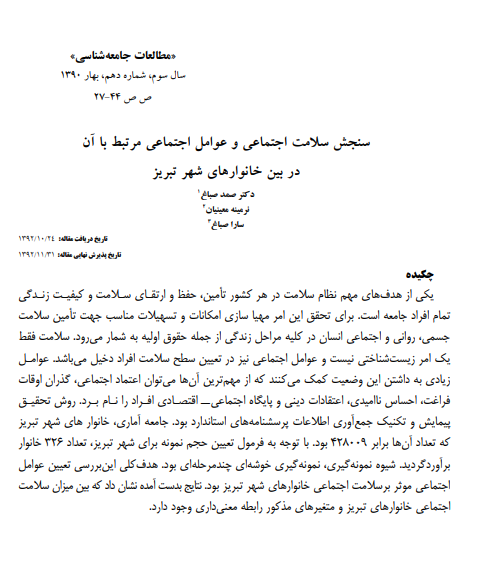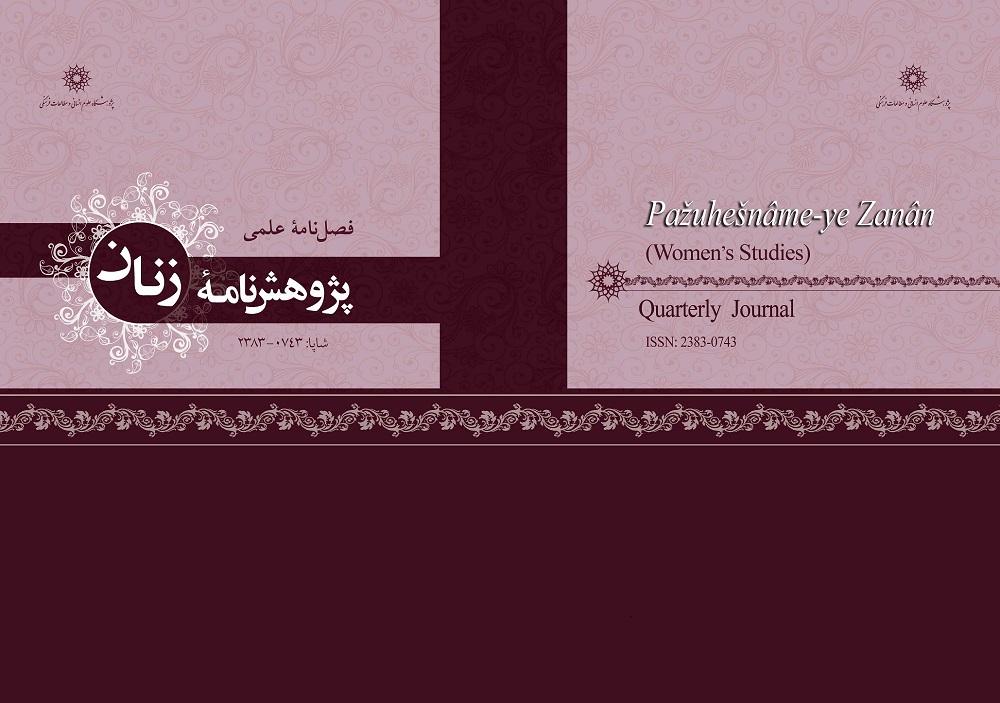Minister of Science emphasizes the role of UNESCO chairs in Iran's scientific development and scientific diplomacy - کرسی یونسکو در سلامت اجتماعی و توسعه ucshd

Minister of Science emphasizes the role of UNESCO chairs in Iran's scientific development and scientific diplomacy
Minister of Science emphasizes the role of UNESCO chairs in Iran's scientific development and scientific diplomacy
08 02 2025 06:41
News Code : 47164873
View Count : 19394
The Minister of Science, Research and Technology and the Head of the National Commission for UNESCO in Iran, in the opening ceremony of the UNESCO Chairs in Iran meeting, emphasized the importance of these chairs in scientific exchange, scientific diplomacy and sustainable development.
The Minister of Science, Research and Technology and the Head of the National Commission for UNESCO in Iran, in the opening ceremony of the UNESCO Chairs in Iran meeting, emphasized the importance of these chairs in scientific exchange, scientific diplomacy and sustainable development. He also called for increasing domestic support for UNESCO chairs, expanding scientific exchange and creating new chairs, especially in the field of culture.
|
The UNESCO Chairs in Iran meeting was held in the presence of Dr. Hossein Simaei-Sarraf, Minister of Science, Research and Technology, Dr. Hassan Fartoosi, Secretary-General of the National Commission for UNESCO in Iran, Mr. Ying Sarang, Head of the UNESCO Office in Tehran, and Dr. Ahmad Paktchi, Ambassador and Permanent Representative of the Islamic Republic of Iran to UNESCO, and Ms. Maya Prince, Expert on UNESCO Chairs in Paris (online), Directors of Specialized Groups of the National Commission for UNESCO and scientific officials, Presidents of host universities and Chairs and UNESCO Representatives in Tehran. In this meeting, the Minister of Science, Research and Technology, while pointing out the importance of UNESCO Chairs in promoting international scientific cooperation, examined the opportunities and challenges of these chairs in Iran. The role of UNESCO Chairs in scientific development and scientific diplomacy Stating that UNESCO has always provided a suitable platform for the exchange of scientific knowledge and experiences, Dr. Hossein Simaei-Sarraf, Minister of Science, Research and Technology, stated: UNESCO Chairs not only help to grow education and research, but are also effective in creating critical thinking and promoting the spirit of research. He also emphasized the role of these chairs in scientific diplomacy and said: In today's world, scientific communication can help reduce tensions and increase world peace. The necessity of supporting UNESCO Chairs in Iran Referring to existing challenges, including financial restrictions and sanctions, the Minister of Science emphasized the need for scientific institutions to provide more support for UNESCO Chairs. He called on universities and relevant ministries to provide the necessary financial resources, adding: “Providing effective results and solving the country’s problems by these chairs is the best incentive to attract financial support.” Expanding UNESCO Chairs and Focusing on New Topics Simaei Sarraf also called for the expansion of UNESCO Chairs in Iran, especially in the field of culture, and emphasized that these chairs should not be limited to Tehran universities. He proposed creating a broad network of chairs in universities across the country to strengthen scientific cooperation at the national and international levels. He went on to point out Iran’s scientific achievements in fields such as nanotechnology, biotechnology, and artificial intelligence, and emphasized that despite sanctions, Iran remains one of the leading countries in producing science in the region. However, international restrictions have affected the country’s scientific exchanges. The head of the National Commission for UNESCO in Iran announced the readiness of the Islamic Republic of Iran to expand scientific and research cooperation with other countries and actively participate in UNESCO programs, and called on this international organization to develop multilateral research projects in areas such as climate change, bioethics, artificial intelligence, and green education. He emphasized that UNESCO chairs can be a valuable opportunity to strengthen Iran’s scientific position in the international arena. UNESCO’s Role in the World’s Scientific and Cultural Development Dr. Hassan Fartoosi, Secretary-General of the National Commission for UNESCO in Iran, began his remarks at the meeting by congratulating the blessed festivals of Sha’baniyah and the Fajr decade, and commemorated the 75th anniversary of the establishment of the National Commission for UNESCO in Iran, and appreciated the presence of scientific and academic officials at the meeting. Referring to UNESCO’s mission in the fields of education, science and culture, he said: “Since its establishment in 1945 (1327), UNESCO has always taken steps to promote peace and sustainable development through education, science and culture. This organization has had many positive impacts on global communities through its programs. The Secretary-General of the National Commission for UNESCO in Iran emphasized that UNESCO Chairs in member countries, including Iran, can help achieve the organization’s goals by creating scientific and research synergies at the national, regional and international levels. He added: “Iran has 18 UNESCO Chairs in various fields of education, natural sciences, social and human sciences, and communications and information, which are hosted by the country’s universities and research institutions. These chairs play an important role in strengthening education, research, and help the National Commission for UNESCO to better monitor the performance of the chairs and take steps to strengthen them.” He added: "Transparent reporting not only increases the effectiveness of the chairs' activities, but also allows for strengthening international cooperation and, in some cases, attracting financial resources. Also, intersectoral activities and coordination between universities and various scientific centers can help improve the performance of UNESCO chairs and achieve their goals."
Future plans for developing UNESCO Chairs in Iran Referring to the future plans of this institution to strengthen UNESCO Chairs in the country, the Secretary-General of the National Commission for UNESCO said: The National Commission for UNESCO in Iran has played its role in establishing and extending the Chairs well. However, in the new period, we plan to increase our advisory, supervisory and support role in addition to this task. Our goal is for UNESCO Chairs to play a more active role in the global network of UNESCO Chairs and to be able to have a greater impact. He continued: One of our priorities is decentralization and fair distribution of opportunities to create new Chairs in educational and research centers outside Tehran that have high scientific capacities. Also, considering the importance of culture, we plan to establish a UNESCO Chair in this area as well. Dr. Fartoosi emphasized the importance of UNESCO Chairs’ interaction with the scientific and civil society, saying: “We expect UNESCO Chairs to play a role in the scientific and cultural policy-making process, in addition to educational and research activities and holding meetings and conferences. These Chairs should strengthen their relationship with civil society and play a more effective role in scientific and cultural decision-making.” Conclusion and Outlook of the UNESCO Chairs Meeting At the end of his speech, he pointed out the importance of this specialized meeting and said: Today's meeting is a valuable opportunity to examine the opportunities and challenges of UNESCO Chairs in the country. The presence of the high-ranking official of the Ministry of Science, Research and Technology and the respected university presidents in this meeting shows the high importance of this issue. We hope that with the cooperation of all stakeholders, we can find appropriate solutions to improve the performance of UNESCO Chairs and improve their operating conditions. The Secretary-General of the National Commission for UNESCO in Iran emphasized: We, at the National Commission for UNESCO, will make more efforts than ever to strengthen international relations, create new opportunities for scientific cooperation, and develop the activities of UNESCO Chairs, to enhance the role of these institutions in advancing the country's sustainable and scientific development goals. UNESCO Chairs, a bridge between research and policymaking Mr. Yeng Serang, Head of the UNESCO Office in Tehran, in his speech at this The meeting considered UNESCO Chairs to be more than academic research centers, saying: These Chairs operate as institutions to examine emerging challenges, provide innovative solutions, and formulate practical policies at the national and international levels. He also highlighted the role of these Chairs in enhancing synergies between researchers, policymakers, and civil society. UNESCO’s Scientific Cooperation with Iran The Head of the UNESCO Office in Tehran, Sarang, pointed to UNESCO’s extensive interaction with Iranian scientific chairs, adding: “In recent years, we have had effective cooperation with the UNESCO Chair in promoting science and the Natural Disaster Research Institute in the field of traditional knowledge and sustainable water resources management.” Emphasizing the need to strengthen international cooperation, Sarang said: “The UNESCO Office in Tehran is committed to connecting UNESCO Chairs to global funding organizations and research institutions in order to increase their scope of influence.” The Head of the UNESCO Office in Tehran emphasized the importance of expanding the activities of UNESCO Chairs, and He said: “We are looking to identify new areas for regional and international partnerships so that the chairs can play a greater role in interdisciplinary fields.” He also emphasized the need to strengthen cooperation between UNESCO chairs and relevant research centers, adding: “With the cooperation of the National Commission for UNESCO in Iran, we can expand the platforms for knowledge exchange and strengthen scientific synergy.” Sarang also appreciated the role of the Iranian Ministry of Science, Research and Technology in supporting UNESCO programs, saying: “Under the leadership of Dr. Simaei, these partnerships will expand even more.” Sahar Ahmadizadeh, Director of the Natural Sciences Department of the National Commission for UNESCO in Iran, also considered UNESCO chairs as a platform for scientific development and international cooperation, saying: “The UNESCO Chairs Program, which began in 1992, plays a key role in knowledge exchange, the development of interdisciplinary education and research, as one of the most important structures of international scientific cooperation. This Chairs in Iran are also active in various fields of science, education, social sciences and communication. He continued: UNESCO Chairs operate as scientific think tanks around the world and play an important role in connecting universities with civil society, policy-making institutions and local communities. These chairs respond with high flexibility to economic, social and technological changes and take steps to solve emerging challenges in education and research. Regarding the responsibilities of the host institution and the chair head, Ahmadizadeh also stated: UNESCO Chairs operate under the supervision of the host institutions, which are responsible for providing research facilities, financial support, participating in UNESCO international programs and facilitating scientific exchange. The chair head is also responsible for renewing the memorandum of understanding, collecting financial donations and publishing scientific findings. They play a role in scientific research and development in the country and the region.
Challenges Facing UNESCO Chairs in Iran Referring to Iran's scientific capacities, Fartoosi explained some of the challenges in the path of UNESCO Chairs' activities and said: Iran is a country with a rich history and civilization, but it is developing, which can benefit from the capacity of the UNESCO Chairs' network to improve the quality of education and scientific research. However, in this path, challenges such as financial restrictions, sanctions, and some political and economic issues have prevented the full exploitation of these capacities. He added: One of the main problems of UNESCO Chairs is securing financial resources to implement various projects and programs. In this regard, the role of the institutions hosting the chairs is very vital. The presidents of universities and scientific centers must adhere to their commitments to UNESCO Chairs and help achieve the goals of these chairs by cooperating with various organizations and receiving support from relevant ministries. The Secretary-General of the National Commission for UNESCO further warned that if there is no sufficient support for UNESCO Chairs, some of them may be dissolved. He emphasized: Chairs that have been established with the efforts and commitment of universities and research institutions will not be able to continue their activities if there is no support. This will not only harm the country’s scientific activities, but the opportunity that has been provided for the country with great effort will simply disappear. The necessity of reporting and strengthening scientific cooperation Dr. Fartoosi further emphasized the importance of accurate reporting on the performance of UNESCO Chairs and said: One of the important things in evaluating the performance of the Chairs is providing accurate reports on activities, challenges and future plans. These reports are not only useful for UNESCO’s decision-making on the extension of UNESCO Chairs in Iran; From Education to Social Sciences The Director of the Natural Sciences Group of the National Commission for UNESCO added: UNESCO Chairs are active in various fields, including education, sciences, social sciences and humanities, and communications. Some of the most important active chairs in the country include the Chair of e-learning, quality assurance in higher education, and entrepreneurship, the Chair of interdisciplinary research on diabetes, natural disaster management, and science promotion, the Chair of bioethics, social health, and human rights studies, the Chair of cyberspace and culture and communications in science and technology. At the end of his speech, he emphasized the importance of UNESCO Chairs in sustainable scientific development and policy-making: Strengthening international cooperation and supporting these chairs can be an important step towards improving Iran's scientific position at the global level. New Vision for UNESCO Chairs in the Line of Sustainable Development and Interdisciplinary Partnerships In her opening speech at the UNESCO Chairs in Iran, Ms. Maya Prince, Program Director of UNESCO Chairs, also highlighted the importance of interdisciplinary collaborations and the free exchange of knowledge. She noted that the future of these chairs will be shaped by the three principles of “interdisciplinary”, “open” and “impactful”. The Necessity of Global Collaboration and the Social Impact of UNESCO Chairs Prince emphasized the need for global engagement and collaboration, especially through South-South cooperation models. She also considered the importance of the social impact of UNESCO Chairs to go beyond education and research and called for the chairs to participate more actively in global projects. In another part of her speech, Prince highlighted the role of host institutions and their commitments and called on university presidents to actively support UNESCO Chairs. She pointed out the need to strengthen communication and visibility of the Chairs through the development of websites and continuous updates. In conclusion, Maya Prince thanked the National Commission for UNESCO for organizing this meeting and facilitating knowledge sharing between the Chairs and host institutions, and wished them success in further partnerships towards sustainable development and positive global change. Science; A Bridge Between Nations and Civilizations Dr. Ahmad Paktchi, Ambassador and Permanent Representative of the Islamic Republic of Iran to UNESCO, also stated at the meeting to review the opportunities and challenges of UNESCO Chairs in Iran: Science has always been the fruit of dialogue, interaction and exchange of ideas. From ancient times and the Silk Road to the Renaissance and the modern era, scientific advances have been the result of transnational cooperation, and political borders have never hindered the free flow of knowledge. Today, great scientific achievements such as quantum mechanics, the discovery of DNA and the development of artificial intelligence are the result of the collaboration of scientists from all over the world. The role of UNESCO Chairs in knowledge exchange He added: The UNESCO Chairs program, which began in 1992, provides a valuable platform for international scientific and educational cooperation. These chairs facilitate communication between researchers, universities and scientific centers and create networks that help expand global knowledge beyond geographical borders. Paktchi emphasized: UNESCO Chairs are a unique opportunity for Iranian scientists to interact with the global scientific community. Given Iran's rich scientific background, from Avicenna and Biruni to Al-Khwarizmi, these chairs can pave the way for international cooperation, the publication of joint articles and the implementation of cross-border research projects. These interactions not only make Iran's scientific achievements visible at the international level, but also provide the opportunity to benefit from the world's latest scientific advances.
Iran’s Commitment to Expanding UNESCO Chairs The Ambassador and Permanent Representative of the Islamic Republic of Iran to UNESCO announced that it is ready to support the activities of existing scientific chairs and develop a network of new chairs in the country. This will be done with the aim of strengthening scientific cooperation, exchanging knowledge, and realizing UNESCO’s ideals in promoting science and education. Fartoosi, Secretary-General of the National Commission for UNESCO, also expressed hope that effective steps will be taken to develop and strengthen these chairs through interaction and cooperation between the Ministry of Science, Research and Technology, universities, and heads of UNESCO chairs. In the second part of this specialized meeting, university presidents discussed and exchanged views and examined the challenges and opportunities of UNESCO chairs in Iran. The first UNESCO Chairs meeting in Iran was held with the aim of promoting scientific cooperation, knowledge exchange, and developing research-based policies. Participants pointed out the need to strengthen these interactions and the need to support the free exchange of knowledge, establish international research networks, and actively participate in this process. Because science flourishes when it grows in an open space without unnecessary restrictions, and the UNESCO Chairs program is an example of this global and inclusive approach.
|






